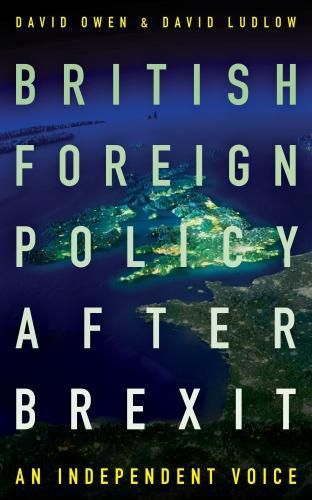Readings Newsletter
Become a Readings Member to make your shopping experience even easier.
Sign in or sign up for free!
You’re not far away from qualifying for FREE standard shipping within Australia
You’ve qualified for FREE standard shipping within Australia
The cart is loading…






British Foreign Policy after Brexit by David Owen and David Ludlow is, perhaps surprisingly, a book written by two people from different generations who voted on opposite sides in the 2016 referendum. One a politician, the other a former diplomat, they both have significant business experience in world markets.
The authors demonstrate how Britain’s global role and influence can be enhanced rather than diminished post-Brexit, with a diplomatic, security, development and trade agenda based on hard-headed realism, including a review of budgetary priorities.
As a firmly European country, they see the UK as a key player with Germany and France in the wider Europe, and a leader in security issues threatening the continent’s stability. They do not regard the relationship with Moscow as inevitably confrontational, but believe strengthening NATO is essential and a top priority to contain Russia.
In the wider world, a reinvigorated UK-US relationship will be critical, but must accommodate differences in some core areas, e.g. in dealing with China. Furthermore, they see the UK’s new aircraft carrier at the heart of a UN Rapid Reaction Force drawn mainly from Commonwealth countries, including Australia, Canada, India and New Zealand, and supporting operations around the globe.
$9.00 standard shipping within Australia
FREE standard shipping within Australia for orders over $100.00
Express & International shipping calculated at checkout
British Foreign Policy after Brexit by David Owen and David Ludlow is, perhaps surprisingly, a book written by two people from different generations who voted on opposite sides in the 2016 referendum. One a politician, the other a former diplomat, they both have significant business experience in world markets.
The authors demonstrate how Britain’s global role and influence can be enhanced rather than diminished post-Brexit, with a diplomatic, security, development and trade agenda based on hard-headed realism, including a review of budgetary priorities.
As a firmly European country, they see the UK as a key player with Germany and France in the wider Europe, and a leader in security issues threatening the continent’s stability. They do not regard the relationship with Moscow as inevitably confrontational, but believe strengthening NATO is essential and a top priority to contain Russia.
In the wider world, a reinvigorated UK-US relationship will be critical, but must accommodate differences in some core areas, e.g. in dealing with China. Furthermore, they see the UK’s new aircraft carrier at the heart of a UN Rapid Reaction Force drawn mainly from Commonwealth countries, including Australia, Canada, India and New Zealand, and supporting operations around the globe.